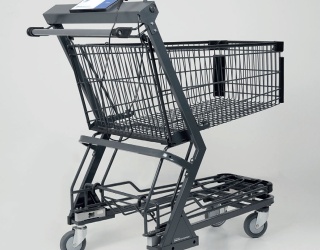In the old days, it entailed gut-level decisions. Meanwhile, artificial intelligence and algorithms assist with replenishment and price optimization today. Dunja Riehemann, Director of Marketing at Blue Yonder, which collaborates with retailers such as Bonprix, Otto, dm, and Morrisons, explains why retailers can benefit from machine learning solution.
Ms. Riehemann, what makes machine learning so valuable for the retail industry?
Machine learning implies that a system is able to make independent decisions and react to changed requirements and products based on algorithms and collected data. For example, the solution accurately calculates how many pork chops are needed prior to a sunny holiday by predicting future consumer buying behavior.
As a provider of intelligence, you offer machine learning solutions for retail to optimize replenishment and prices. How exactly does this work?
By using historical sales data and by including public holidays, vacation times and weather conditions, systems like ours that are based on artificial intelligence allow retailers to accurately forecast the amount of merchandise needed to be in stock at the store to meet customer demand. This information is linked with the ERP and merchandise management systems of retailers. Order recommendations for replenishment and price optimization are automatically made available in the respective systems via the Cloud.
How accurate are these forecasts and what are retailers able to gain from them?
They are highly accurate. In the case of Morrisons, one of the leading chains of supermarkets in the United Kingdom, we were able to reduce out-of-stock rates by about 30 percent by utilizing a simple ordering system. This is great progress. We are in charge of the overall replenishment of durable products in the stores. The roll-out in all 491 stores took place in the fall of last year. The system handles more than 13 million ordering decisions each day. This enables Morrisons to also achieve its goal of giving store associates more time to service their customers and not having to worry about administrative tasks like issuing orders for the next few days. We are now expanding cooperation to other product selections.

Replenishment optimization has changed considerably over the past years.
Yes, that’s true. In the past, retailers made gut-level decisions, as in “Tomorrow is a holiday and the weather is supposed to be nice, so I guess I stock my stores with these products." There was no way of keeping track of the inventory in detail. However, in this day and age, retailers are no longer able to afford surplus inventory and elevated levels of waste because it is extremely expensive and could mean tarnishing the reputation of a company. When people find out that a supermarket chain throws away tons of groceries, it causes damages that go far beyond revenue loss. Having said that, customers still expect to find a fresh salad on Thursday evenings. Retailers need to consider all of these factors in their planning process.
You have specialized in food and fashion retailing. Why is that?
That’s because next to margin and revenue pressure, these areas are also very driven by online pure players. Added to this is that the shelf life of fresh foods in food retailing is limited and that retailers sell their merchandise right up to the expiration date. We support them in this by optimizing replenishment and facilitating flexible pricing. Things are different in fashion retailing, which is more driven by seasonal influences and needs to ensure its products in inventory have been sold by the end of the season to avoid sitting on unsold merchandise. We assist our customers by continuously adapting their prices, thereby significantly boosting their chances of selling their products.
You got the idea for your solutions from particle physics. How did this come about?
Blue Yonder originates in the data science field. The company’s founder Professor Michael Feindt is a former CERN scientist and noticed during his work that there are big parallels between particle physics and economic issues. After all, the challenge there is also to find connections in data that is so big to where a human being is no longer able to keep track of it – as is the case with the large and complex datasets created at the POS. We used this to develop our solutions, which can be applied in both online and offline retail.
Is artificial intelligence still a very abstract concept for the retail industry?
Actually, it no longer is. This term is currently being hyped up the same way big data was back in the day. I think the economic sector finally understands how these solutions can be incorporated into business processes to reap the benefits. In the case of Otto, for example, we optimize replenishment of the distribution centers with their partner retailers and we assist dm with forecasts its suppliers receive to deliver their products at a later stage. We also support the Magazine zum Globus AG with a pricing solution.
Does this make humans obsolete?
Unlike a human being, a machine is far superior in keeping track of large and complex datasets. That being said, a machine will never be able to make strategic decisions for us. Humans will continue to have to make those.
Copyright title picture: panthermedia.net/agsandrew










